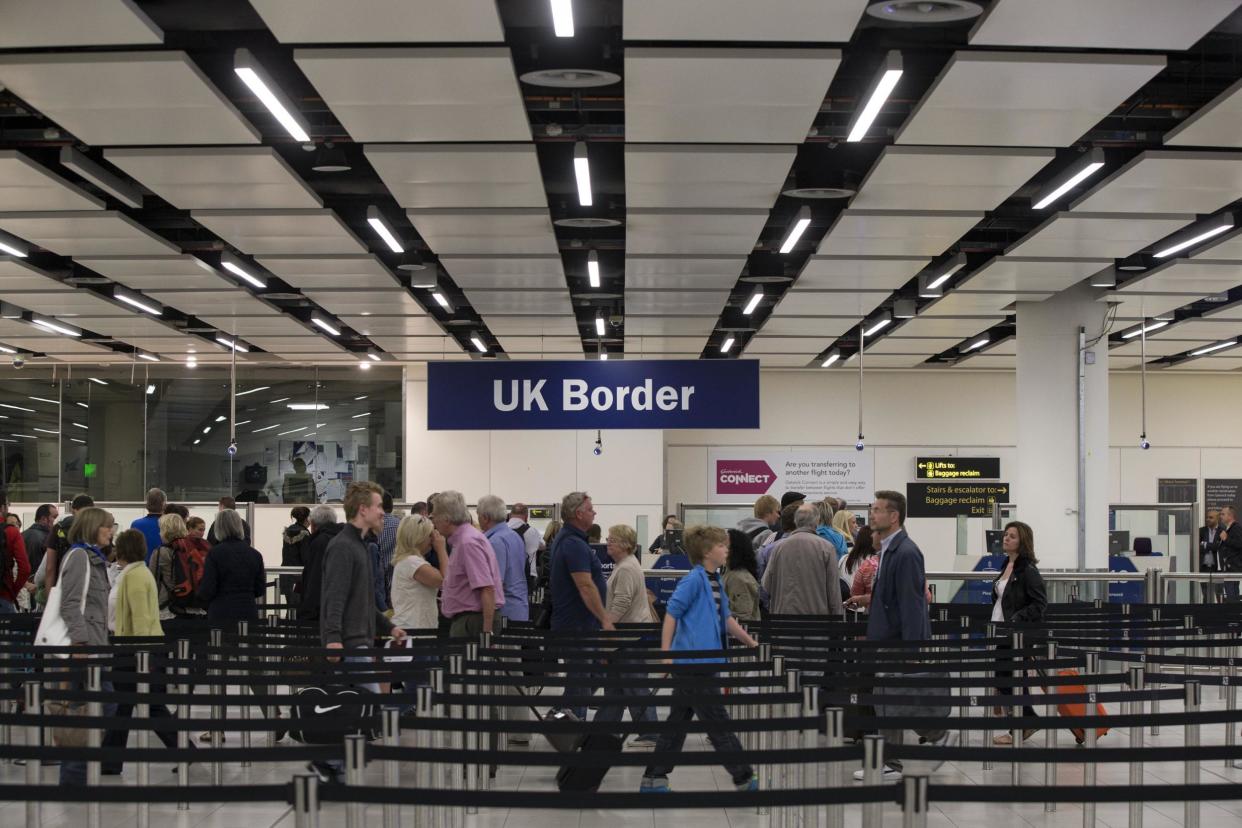Britons want 'smarter border control without blanket caps on migrants'

Most Britons want smarter border control that does away with the blunt blanket caps on migrants used by government over the last 10 years, a new poll has revealed.
The exclusive survey for The Independent showed huge support for Home Secretary Sajid Javid’s recent move to lift incoming NHS professionals out of a cap system for skilled worker visas.
But the BMG Research study also revealed a large section of the public is ready to accept either increasing the number of all types of skilled workers coming in or even completely scrap the cap, which has been championed by Theresa May since she was in the Home Office.
The poll showed that almost half of people back a move to abolish the discredited target of lowering annual net migration to 100,000.
The survey comes as ministers draw up plans for post-Brexit immigration, with one cabinet member signalling it could be an opportunity to abandon the 100,000 cap.
The Independent has teamed up with the Open Britain group to run a ‘Drop the Target’ campaign, which would have the blunt approach to lowering migration replaced with a more constructive policy.
The debate around the UK’s immigration system was once again thrust to the top of the news agenda when Mr Javid and health secretary Jeremy Hunt launched a push to have medical professionals removed from the cap system on visas for skilled workers.
Hospital trusts had complained the cap prevented them bringing in enough staff to run the NHS, a problem exacerbated by a huge drop in nurses coming from Europe since the Brexit vote.
The BMG poll of some 1,500 people showed a large majority of the public backing the cabinet ministers’ approach – some 58 per cent – while only 22 per cent opposed it and a fifth said they did not know.
The public also withheld support for the broader cap system, introduced by Ms May when she was home secretary.
Some 16 per cent said it should be ditched altogether, while 31 per cent said the cap should be raised to allow more skilled workers to come to the UK – meaning overall support for increasing the number of skilled migrant visas hit 47 per cent.
Only nine per cent said the cap should be lowered, and six per cent said it should be put at zero, whereas 25 per sent said it should be kept the same and 14 per cent said they did not know.
Once ‘don’t knows’ were excluded, a total of 54 per cent backed increasing the number of skilled worker visas by either raising the cap or abandoning it altogether, while just 17 per cent thought it should be lowered and 29 per cent said it should be kept the same.
The idea of lowering overall net migration – the number of people coming into the country, minus those leaving – to 100,000 was first introduced by David Cameron.
But it is a target that has been consistently missed, leading some to believe it eroded trust in the government’s ability to control borders ahead of the Brexit vote.
There is also an ongoing spat about how net migration data is calculated, with many, including Mr Javid, concerned that the inclusion of foreign students means people are being deterred from studying in the UK.
Yet despite pressure from a string of cabinet ministers, Ms May has refused to reform the system.
But when respondents to the BMG poll were asked if they thought it was time for the symbolic 100,000 target to be abandoned, some 17 per cent ‘strongly’ supported the move and 26 per cent ‘somewhat supported’ it.
Meanwhile, 22 per cent somewhat opposed abandoning the cap and 15 per cent strongly opposed it.
The new post-Brexit immigration system could create an opportunity to update the UK’s approach, without the target
Cabinet minister
A fifth said they did not know but, once these were excluded, it meant an overall majority in favour of ditching the target – 54 per cent – against 46 per cent who would keep it.
Even some Conservative insiders believe the target is an unhelpful block to smart immigration reform, and may have been ditched by now had Ms May not feared making her party look weak on immigration – Mr Javid himself recently refused to explicitly endorse the target in an interview.
The new poll comes at a critical moment for British immigration policy, as ministers work on their white paper setting out how border control will operate in the post-Brexit world.
Any new system will have to take a measured approach, with previous polling showing the public are still concerned by illegal immigration and support policies to clamp down on it.
The new system is not expected to be unveiled until the autumn and will be closely scrutinised both by Tory Brexiteers, threatening to rebel if it looks too much like ‘free movement’, and businesses, who fear tighter controls will leave them unable to access talent.
One cabinet minister, who did not want to be named, told The Independent: “The new post-Brexit immigration system could create an opportunity to update the UK’s approach, without the target.
“At the same time, I think the target is achievable. And if that is the case then there is not a reason to necessarily abandon it.”
Insiders believe reform is far more likely to take place on a step by step basis, with a series of small changes, while the 100,000 target will be further sidelined as an aspiration, albeit not altogether abandoned.
A Home Office spokesperson told The Independent: “We are committed to delivering an immigration system which works in the best interests of the country. It is right that employers look first to the resident workforce before recruiting from overseas.
“However, the Home Office always keeps visa routes under review and assesses all applications on their individual merit.”

 Yahoo News
Yahoo News 
